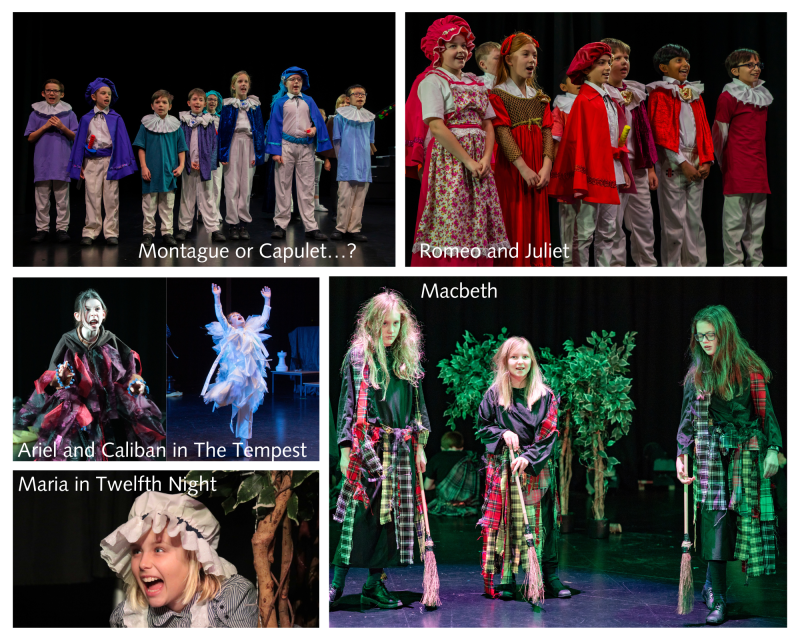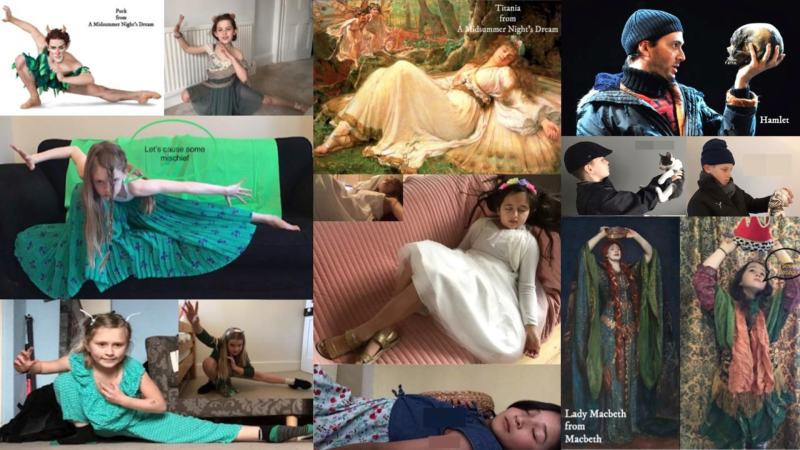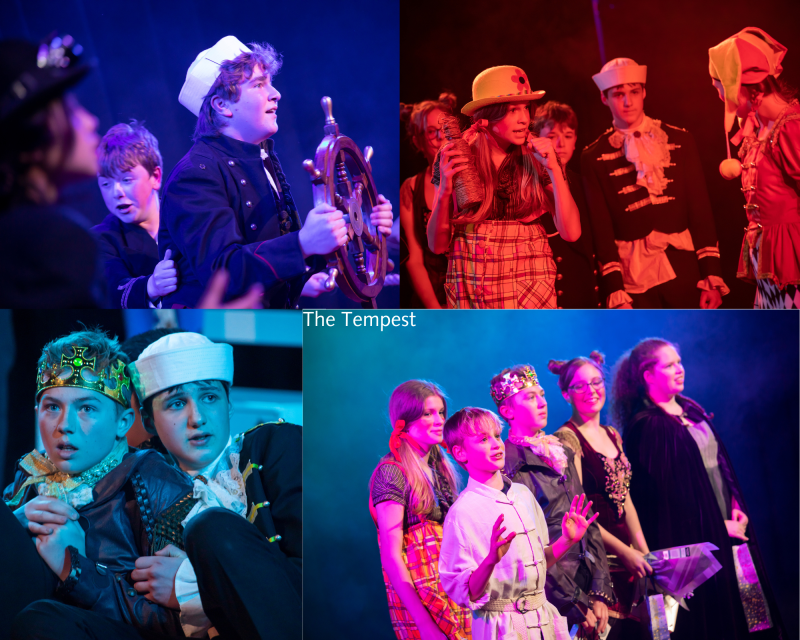This post on the teaching of Shakespeare at Bristol Grammar School was written by Sian Scott-Wilson, Infant and Junior Drama Coordinator, and Peter Forster, Head of English, and originally published on the HMC website, to coincide with their 2023 conference in Stratford-upon-Avon.
Shakespeare in the Junior School
“Our doubts are traitors, and make us lose the good we oft might win by fearing to attempt.”
No such doubts seem to exist in our Junior School. For them the study of Shakespeare holds no fear, and all attempts to engage with the works of Shakespeare at a young age, in both English and Drama lessons, have resulted in nothing but good!
This has been particularly evident in the popularity of our after-school Shakespeare Club. Here the children choose to explore the rich language, plot intricacies, and complex characters of Shakespearean theatre in order to stage a thirty-minute performance to an audience of their friends and family.
One dramatic technique used to introduce a new play (and one that is much favoured by the children) is a ‘Whoosh’ activity. It is a method of interactive storytelling developed by the Royal Shakespeare Company.
How to do it:
The group of budding thespians stand in a large circle and, with the teacher as narrator, everyone takes turns to step into the circle and represent a part of the story as it unfolds. This can include becoming objects and scenery as well as characters. The tableau is enlivened through movement, improvised dialogue or repetition of lines quoted in the retelling. Once a scene has been enacted (or if the circle becomes too overcrowded) the teacher calls ‘Whoosh’ as a signal for everyone to return to the circle and the story continues. In this way, different children get to play the same character at various times, and everyone gets a chance at trying several roles—regardless of gender or aptitude.
Using this approach, Shakespeare’s plays are brought to life and made accessible, the children have come alive and are fully engaged, raring to go and give their all. The pleasure and empowerment that Shakespeare Club gives to our young children can be seen in these photos from the club’s recent productions:

The positive glee is evident as Maria urges her conspirators into the box tree to witness the fun.
Even lockdown couldn’t daunt the enthusiasm of our pupils, as these at-home recreations of famous characters and scenes, all completed in one online lesson, show:

Shakespeare in the Senior School
In the Senior School, Shakespeare is likewise central to our curriculum. Some classes enjoy using Jan Mark’s 2003 novel, The Stratford Boys, as a springboard into various aspects of Shakespeare’s craft: introducing his development of complex, flawed characters (Macbeth); the importance of prologues (Romeo and Juliet); his development of the clowning tradition (Touchstone, Dogberry, Bottom); death and ghosts (Hamlet); and boy players and gender-bending (Twelfth Night). Other classes explore The Tempest through different critical lenses: examining postcolonial, metafictional, environmental readings of the play and responding to the play with their own recreative writing.
With exam revision in mind, we set up a podcast for Year 11 pupils to focus on key moments in the plays they study.
How to set up a revision podcast:
We upload each episode to the website www.buzzsprout.com which distributes them to all the main podcast providers, enabling students to listen on any device and revise on the move. Here is an episode in which one of our teachers talks with a Year 12 pupil about the presentation of Iago in the opening to Othello; here is another in which two teachers talk about the portrayal of female characters in Othello.
However, the key to enjoying Shakespeare is, of course, seeing the plays onstage: our Year 11s and Year 13s were lucky enough to go to the superb National Theatre production of Othello last year. The annual residential trip to Stratford-upon-Avon is also very popular, as are the Senior English Society lectures which introduce students, among other things, to Tiffany Stern’s superb research on rehearsal and performance on Shakespeare’s stage.
It seems that in good times and bad, studying Shakespeare is inspirational: the more fun it is, the more memorable it becomes.

Sian Scott-Wilson, Infant and Junior Drama Coordinator, BGS Juniors
Peter Forster, Head of English, Bristol Grammar School
